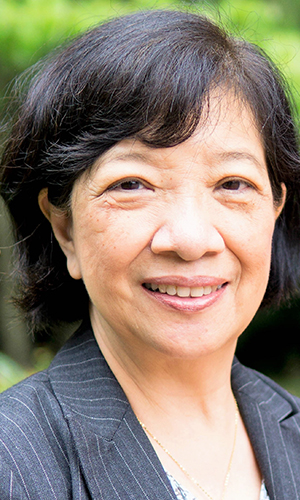Distinguished Alumni Award
Dr. Jenny Pan-Yung Ting '75
William R. Kenan Professor of Genetics, Microbiology-Immunology
Immunology Program Co-Leader at the Lineberger Comprehensive Cancer Center
Director of Center for Translational Immunology
The University of North Carolina at Chapel Hill
 An undergraduate degree in medical technology was the first step in Dr. Jenny Pan-Yung Ting’s journey to becoming an internationally recognized immunologist known for groundbreaking discoveries and observations that have impacted the fight against numerous diseases.
An undergraduate degree in medical technology was the first step in Dr. Jenny Pan-Yung Ting’s journey to becoming an internationally recognized immunologist known for groundbreaking discoveries and observations that have impacted the fight against numerous diseases.
After attending Illinois State on a foreign student tuition waiver scholarship, Ting earned a Ph.D. from Northwestern University and completed post-doctoral work at the University of Southern California and Duke University. She is the William R. Kenan Professor of Genetics, Microbiology-Immunology; Immunology Program co-leader at the Lineberger Comprehensive Cancer Center; and the director of the Center for Translational Immunology, all located at University of North Carolina at Chapel Hill.
Ting has published more than 300 publications and served on several councils of the National Institutes of Health, as well as the president of the American Association of Immunologists. She is a member of several advisory boards, including the Burroughs Wellcome Trust. She has also mentored more than 100 pre-and post-doctoral researchers in her lab.
The focus of Ting’s research is to understand how the innate immune system impacts a plethora of biological functions and clinical outcomes including inflammatory diseases, autoimmunity, cancer, infection, and neuroinflammation. The innate immune system is a major branch of immunology, which is the first line of defense. Her study also extends to understanding how innate immunity affects the microbiome as well as adaptive immunity.
Ting’s pioneering work includes describing the Nod-like receptor (NLR) family of proteins. These proteins sense microbial infection and sterile inflammation and are integral to building immunity. Several companies are exploring viable therapeutic approaches to treating inflammatory diseases based on Ting’s basic research findings.
A member of the College of Applied Science and Technology Hall of Fame, Ting has been awarded the American Society of Microbiology Award for Outstanding Contributions to the Field of Immunology and Immunity. She is a National Multiple Sclerosis Hall of Fame inductee, recipient of the 2021 ICIS-Pfizer Award for Excellence in Interferon and Cytokine Research, and the 2013 AAI-Life Technologies Meritorious Award. These honors recognize Ting’s outstanding discoveries in immunology and molecular biology that impact a range of diseases.
